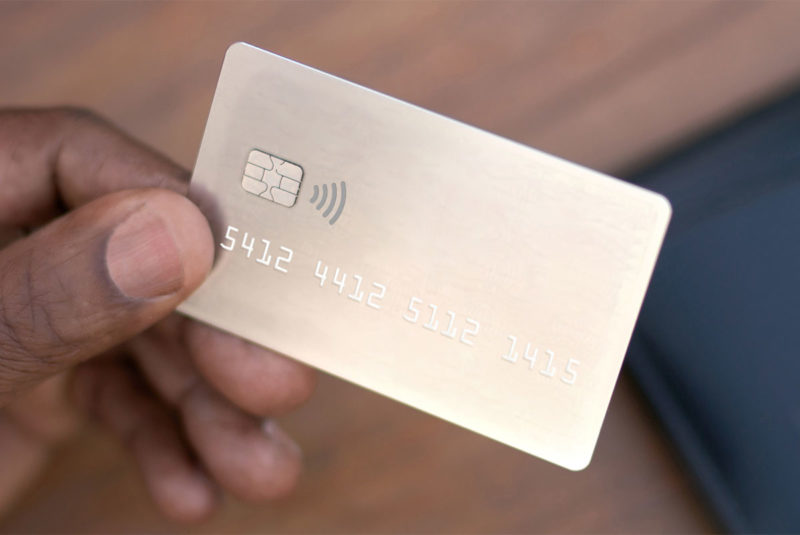Credit cards aren’t the only method you should use to establish and build your credit scores.
To the contrary, while we can’t guarantee that a given credit-building method will get you the best results, it’s generally agreed that using a combination of tactics benefits your credit scores more than relying entirely on credit cards alone.
With that said, let’s dive into five of the best ways to build credit, whether you’re looking to establish credit from scratch or repair severely damaged scores:
- Open your own credit card
- Become an authorized user on another credit card account
- Use a credit builder loan
- Get a personal loan
- Add additional recurring payment types to your credit reports
Discover how each credit-building approach works.
Open Your Own Credit Card
Credit cards can be exceptionally practical for building credit because there are options available for cardholders in virtually every credit situation.
If you have no credit whatsoever, you can stick with a secured card or a student credit card. If you’ve already built fair credit, on the other hand, you may be able to score a decent rewards card that allows you to earn points or a bit of cash back on things you’d already be buying anyway.
Regardless, once you’ve added a credit card to your wallet, your account activity will generally be reported to the three major credit bureaus — Equifax®, Experian™, and TransUnion®. As you make on-time payments, your credit history will age and expand, and your credit scores should grow in turn.
The key to success is to make sure you’re using your credit card responsibly at all times. Otherwise, you could do more harm than good. If you land yourself in deep credit card debt or rack up negative items on your credit reports, the effects of those mistakes can last for years to come.
What are the pros?
- The wide variety of available cards makes it simple to find a product that meets your needs.
- If you can get approved for a rewards card, you can build credit while earning points or cash back.
- Many credit cards offer helpful benefits including potential statement credits, warranty protection, travel insurance, and even airport lounge access, depending on the card.
- Credit cards are useful, versatile payment methods to have on hand.
- Credit cards offer strong fraud protections if they’re ever lost, stolen, or hacked. (You can’t say that about cash or even debit cards to the same extent.)
What are the cons?
- If you haven’t established credit, you may have trouble getting approved for an unsecured credit card.
- Secured cards require you to provide a security deposit up front, which can be an obstacle if you’re strapped for cash.
- Many credit cards charge annual fees, though those designed for individuals with no credit often do not.
- A new credit card account will reduce your average age of accounts if you had any before. This may have a slight negative impact on your credit scores. But that’s true for any type of account, and you have to start somewhere when you’re establishing credit.
What tips are there for using credit cards?
- Pay off your statement balance in full by its due date: If you avoid carrying a balance past your card’s statement due date, you can use a credit card without ever accumulating interest charges.
- Only use the card for things you’d already buy anyway: Never make unnecessary purchases just for the sake of building credit or chasing rewards. Instead, try using your card for necessities, like groceries or gas, and then pay off those purchases immediately.
- Don’t worry about how often you use the card: As far as your payment history is concerned, it doesn’t matter if you use your card once every few months or every day — your credit scores can improve either way (as long as you’re paying your bills on time). Just be sure to use your card enough to keep it active.
- Keep your debt to limit ratio low: The ratio of your combined credit balances to your combined credit limits is known as your credit utilization. A high credit utilization ratio can impact your credit scores in a negative way.
- Avoid applying for too many cards in too short a time: When you apply for a credit card, the issuer will conduct a credit check known as a hard inquiry. This may have an adverse (though temporary) impact on your credit scores. Packing too many hard inquiries into a short period of time might cause more serious damage to your credit scores. Even if your scores are still adequate, too many hard inquiries might potentially prevent you from being approved for some new credit cards if the issuers are inquiry sensitive.
Become an Authorized User on Another Credit Card Account
One of the best ways to build credit from nothing is to simply become an authorized user on a loved one’s credit card account.
It’s one of the easier credit-building tactics, because it requires virtually no effort on your part. The primary cardholder can add you to his or her existing account. Then, the payment activity for that account will generally be reported to the major credit bureaus in your name (depending on the card issuer’s policy). It’s just a matter of finding someone you trust to ask for a favor, because the primary cardholder is entirely liable for the account’s balance. Also if the card isn’t used responsibly, it could hurt your credit scores.
There may be some requirements you’ll have to meet to be an authorized user, but it shouldn’t involve a credit check, and that’s what makes it useful for building credit.
How to manage authorized user status?
There are a few ways you could go about being an authorized user, so talk it over with the primary cardholder to figure out which approach seems best.
One idea is to ask for account access privileges, if the issuer allows it. You can use the card and pay it off promptly to get a better idea of how credit cards work.
Another great option is to simply ask the cardholder to toss the authorized user card, so the account activity appears on your credit reports without you actually having to spend any money.
What are the pros?
- You don’t have to have a credit history to become an authorized user.
- Credit cards offer quick, convenient payments.
- Authorized users often enjoy most of the same perks as the primary cardholder, which can add a lot of value, especially with higher-end cards.
What are the cons?
- You have to have a very strong relationship with whoever is adding you to the credit card account, as the success of this tactic requires responsible use by both parties.
- You may have to meet some requirements. American Express, for example, won’t let you become an authorized user on someone else’s account if you’ve defaulted on an Amex debt in the past and haven’t paid that debt in full. Plus, certain credit card companies set age requirements, though they usually remain in the low teens with most major issuers.
- Most card issuers report account history for authorized users to the credit bureaus. However, some do not.
How can I build credit as an authorized user?
- Be careful who you collaborate with: Don’t try this approach unless you’re 100% confident in the primary cardholder’s ability to pay his or her debts responsibly.
- Know how to remove your authorized user status from an account: You can usually remove your name from an account by contacting the credit card issuer.
- Don’t use the card at all: If you’re struggling financially, this is one of the best ways to build credit. Simply let the primary cardholder use the account as usual, and that positive activity should provide a firm foundation for your blossoming (or rebounding) credit history.
Use a Credit Builder Loan
Like secured credit cards, credit builder loans cater to credit beginners or those looking to repair their credit scores.
They’re quite a bit different than normal loans. Instead of receiving a lump sum of money and then repaying the lender for that amount plus interest, the financial institution issues you a loan but puts the money into some sort of account — usually either a savings account or a CD. Then, you make a fixed monthly payment to the lender.
Your positive payment activity is reported to the credit bureaus throughout the life of the loan.
Take note that the size of your credit builder loan won’t really matter, for credit building purposes. In general, the most important factors here are your payment history and how much of the loan you’ve paid off.
After you’ve paid the predetermined credit builder loan amount in full, you’ll receive access to the funds plus any interest they earned while they were sitting in savings. Of course, you won’t be reimbursed for any interest or fees you paid to the lender.
On top of the interest you pay for your credit builder loan, you’ll usually be charged an administrative or activation fee, as well. But these fees are generally kept quite low and explained clearly ahead of time.
What are the pros?
- A credit builder loan can help you build credit and create a small emergency fund at the same time.
- Loans can usually be tailored to your budget, so you’re not paying more than you can handle.
- Fees are usually low and are fixed monthly, which helps with budgeting.
- Credit builder loans are available through numerous sources, including online lenders and local credit unions.
- Because they are installment accounts, credit builder loans may help diversify the variety of accounts on your credit reports when used alongside a credit card.
What are the cons?
- There are fees, though they’re generally low and affordable.
- You could hurt your credit if you make any late payments.
- The success of a credit builder loan relies on your ability to make payments dependably, but that’s the case with nearly any credit-building tactic.
- Some lenders and credit unions do not report to all three credit bureaus.
How can I build credit with a credit builder loan?
- Shop around: There are several places to get credit builder loans, such as credit unions and online providers, and some may provide better terms than others.
- Create a financial safety net: Consider using the money you get back from the loan to grow your emergency fund.
Get a Personal Loan
It’s true that personal loans can potentially help you to build better credit. Yet it can be difficult to qualify for a personal loan with a decent rate unless you’ve already established some good credit history in the past.
Plus, we only recommend getting a loan if you actually need one to fund a larger purchase, like a car. Applying for a personal loan for the sole purpose of building credit is generally a bad idea.
However, if you legitimately need a loan, on-time loan payments are an excellent way to add to your positive payment history on your credit reports. As with credit builder loans, adding a personal loan (aka an installment account) to your credit mix might also have a positive impact on your overall credit scores, depending upon your existing mix of credit.
Like credit builder loans (which are also installment loans), the size of your personal loan doesn’t have much effect when it comes to building credit.
What are the pros?
- If you already need to make a costly purchase, personal loans, such as auto loans, can provide a convenient opportunity to build credit while you’re paying for it.
- Personal loan interest rates are often quite low if you have good credit.
- With credit cards, a large balance could raise your credit utilization and trigger a drop in your credit scores. Larger balances on personal loans (aka installment accounts) don’t impact your scores in the same negative way.
What are the cons?
- Interest fees could cost you quite a bit over time, especially if a lender offers you a higher rate due to the condition of your credit.
- A personal loan may only lead to trouble if you’re not certain you can make full, on-time payments.
How can I build credit with a personal loan?
- Shop around: As with any loan, you’ll find that different lenders offer different terms.
- Build credit in other ways beforehand: Personal loans are a great next step once you’ve already established your credit scores with a secured credit card and/or credit builder loan.
Add Additional Recurring Payment Types to Your Credit Reports
Certain services, ranging from Experian™ Boost to RentTrack, will allow you to add rent payments, utility payments, and other recurring expenses to your credit reports.
These payments won’t always be factored into your credit scores, but they could help you in some cases.
What are the pros?
- It doesn’t require much effort — you’re already making the payments, after all.
- Some services, like Experian™ Boost, are free of charge.
What are the cons?
- Adding recurring payments to your credit reports might not actually help your credit scores that much (or at all).
- Many services that allow you to add recurring payments to your credit reports cost money.
- If you want your rent reported, your landlord will generally have to cooperate to some degree.
How can I add recurring payments to my credit reports?
- Talk to your landlord first: Your landlord might be willing to report your rent to the credit bureaus to help you avoid having to pay for a reporting service, or may already report it.
- Use Experian™ Boost: A free service, Experian™ Boost allows consumers to connect bank accounts to add utility and telecom bill payments to their credit reports. Note that this only impacts your Experian™ credit report.
The Best Way To Build Credit
The best way to build good credit scores will always vary based on your unique financial situation, including your current credit status, your income, and more.
But many people with no credit, bad credit, or thin credit files can benefit from using a variety of credit accounts responsibly.
For example, if you have the cash on hand, consider signing up for a secured credit card and a credit builder loan.
That’ll give you plenty of opportunities to make on-time payments, and the fact that you’re using two different types of credit will help diversify your variety of accounts, which makes up 10% of your FICO® Scores.
What are the best credit building practices?
No matter how you choose to build credit, it’s essential that you follow credit building best practices if you want to see good results. Most of these rules are pretty simple.
- Always make on-time payments: As the most important factor in the FICO® scoring formula, your payment history accounts for 35% of your FICO® Scores. On-time payments are a must, and late payments are a serious danger to your credit. Consider setting up automatic payments to ensure you’re never past due. And even if you can’t pay off your statement balance in full (which we nearly always recommend, unless you have a card with a 0% introductory APR), always make the minimum payment at the very least.
- Keep utilization low: Credit utilization refers to the ratio of your total amounts owed to your total available credit (credit cards only). It also largely accounts for 30% of your FICO® Scores, so higher utilization will often have a negative impact on your credit scores.
- Don’t close credit cards unless you have to: When you close a credit card, you might accidentally increase the overall credit card utilization ratio on your credit reports. That could trigger an immediate drop in your credit scores. You might also set yourself up for future problems since closed, positive accounts are removed from your credit reports after 10 years. Once the account is removed from your credit (in around a decade) it could lower your length of credit history — worth 15% of your FICO® Scores. You may also need to use your credit card every once in a while, to ensure they’re not closed automatically.
- Monitor your credit regularly: Keeping on top of your credit scores and credit reports enables you to track your creditworthiness as it changes. It’s also a great way to ensure there are no errors that could be adversely affecting your credit. You can use credit monitoring services or check your credit reports for free annually via AnnualCreditReport.com. There are plenty of ways to check free credit scores as well, including tools provided by your credit card issuer.
Looking to build your already-established credit scores with a credit card that suits your lifestyle? Explore all of our favorite credit cards to find one that’s right for you.
Frequently Asked Questions
How do I build credit fast?
One of the quickest ways to build credit is to open a credit card account. Applying for a credit card usually only takes a few minutes, and most of the time you should hear back from the credit card issuer instantly with its decision. Make all of your payments on time and you should see a positive impact on your credit scores.
Another thing to keep in mind when using credit is your credit utilization (the percentage of your overall available credit that you’re using). Low credit utilization is important when aiming for healthy credit scores. Lenders typically like to see a lower percentage.
But you could also build credit without a credit card, or become an authorized user on someone’s credit account. Just having your name attached to a credit account that’s being used responsibly can have a positive impact on your credit.
How long does it take to build credit?
While there isn’t a definitive answer, 6 months is usually enough time to build up a minimal credit history that should have an impact on your credit scores. However, that time could differ depending on if you’re starting from scratch or working to rebuild your credit, and depending on the credit scoring models involved.
Make all of your required payments on time to ensure the impact on your credit scores is a positive one.
The Short Version
- There’s no perfect approach to building credit, you’ll often see the greatest impact by using a blend of credit-building methods
- Using time-tested favorites like credit cards and personal loans are great options
- You can also explore newer services designed to add recurring payments (rent, etc.) to your credit reports




